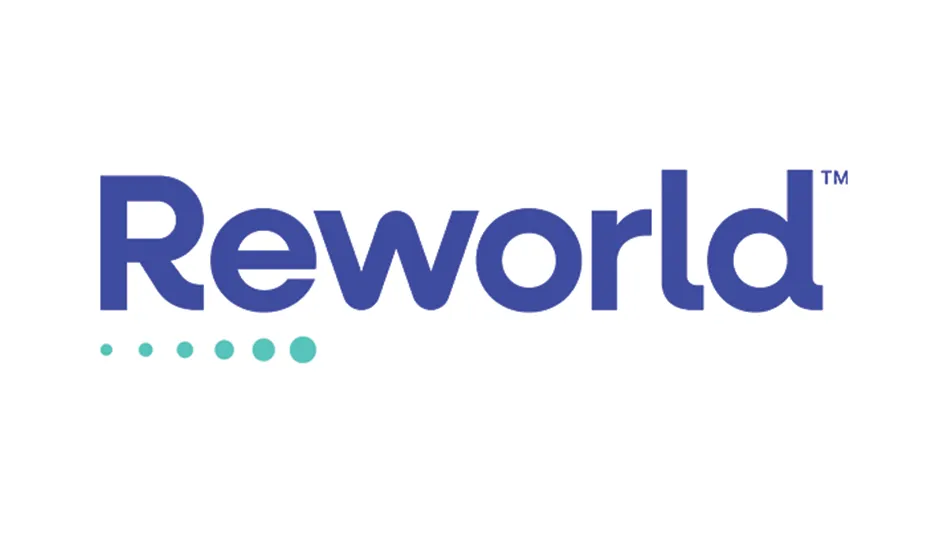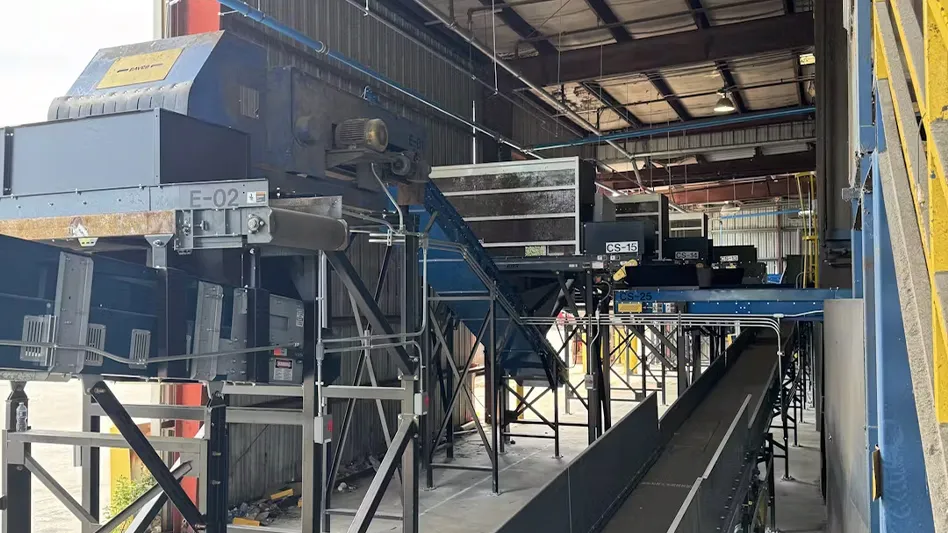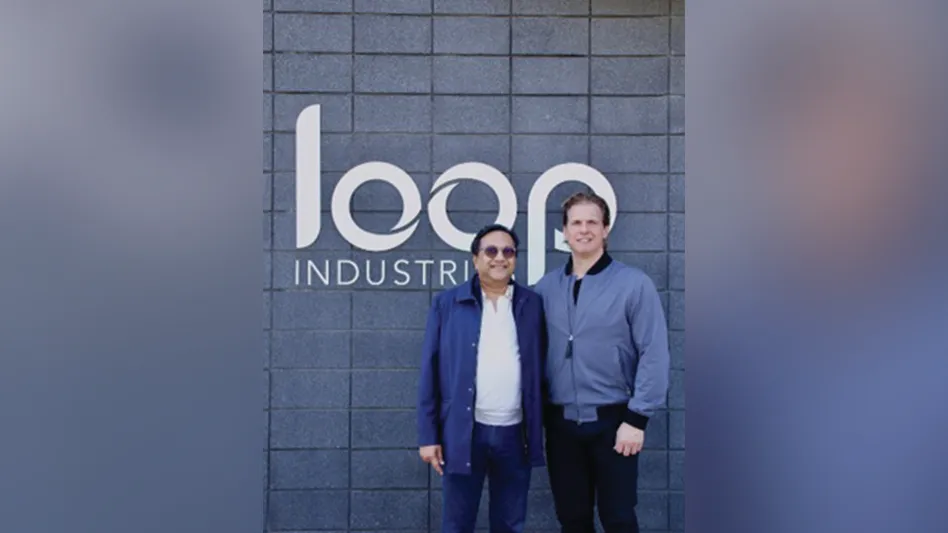.jpg) When RecycleBank landed several million dollars in private equity financing from the venture capital group Sigma Partners several years ago, it appeared that capital markets were starting to open up to environmental services firms.
When RecycleBank landed several million dollars in private equity financing from the venture capital group Sigma Partners several years ago, it appeared that capital markets were starting to open up to environmental services firms.
RecycleBank’s concept is fairly simple: incentivize people to increase participation in municipal recycling programs.
Throughout the past several years, a number of other recycling-related companies in North America have found success going to venture capitalists for money to grow their businesses. For instance, plastics recycling firm MBA Polymers, Richmond, Calif., has raised its profile after landing a significant capital investment from the private equity market. In late 2010, the company secured $20 million in funding from a group of investors jointly led by London-based Doughty Hanson Technology Ventures and Menlo Park, Calif.-based Benchmark Capital. MBA said it would use the financing to expand its operations in Europe and Asia.
George Coelho of Benchmark Capital said, “We believe that MBA has the potential to scale rapidly in a sector that is increasingly important in today’s society. Our team at Benchmark looks forward to working closely with such an exciting company in this fast-advancing field.”
However, the confluence of a shaky U.S. economy, tighter financing requirements and a suppressed appetite for some aspects of the “green” economy has resulted in a less-than-opportunistic market for startup companies in the recycling sector that are looking to the private markets to help scale their businesses.
Environmental Conditions
While the current environment is challenging, money is still available. However, recyclers may want to be aware of the criteria various investment firms take into account when considering a company in which to invest.
In a late 2011 report, the director and principal of the independent investment bank Brown Gibbons Lang & Co. (BGL, www.bglco.com), Effram Kaplan, says he sees renewed activity in the environmental services business. BGL has offices in Cleveland and Chicago and targets middle-market companies.
In his report, Kaplan writes that the middle market continues to demonstrate resilience despite greater market volatility, with overall merger and acquisition volume up 20 percent compared with the previous year. “Flight to quality is fueling a highly competitive market, with purchase price multiples expected to remain elevated for the best companies,” according to Kaplan.
The global investment company Canaccord Genuity notes in a recent report that the “cleantech” sector has begun to improve. In its Sustainability & Cleantech Review, Canaccord Genuity writes that after a relatively slow January, public markets rebounded in February as nine sustainability and cleantech transactions raised $438 million in financing.
On the environmental services side, the bio-fuels sector is generating increased interest. Mark Hanson, a partner with the law firm Stoel Rives, based in Portland, Ore., says private investment groups may express concerns about the supply of material that will be used by such companies to produce fuels. While municipally generated material offers a steady supply, a bio-fuel production company that relies on another firm to supply its raw material could be cause for concern among some investors.
While there is still interest in “green” investments, Hanson says it has dropped off quite a bit. “Lots of things are not as exciting. Technology changes,” he says. These things are a challenge.”
Kaplan counters that while activity has slowed down on the investment front, there still is a significant amount of interest on the part of private equity firms and other investing groups. “There is a significant amount of ‘dry powder’,” Kaplan says, indicating that investors are waiting on the sideline for the right deal to come along.
“What we are seeing is a flight to quality. What was viewed as quality got bid up. Meanwhile, the appetite for risk has increased,” he says.
While money is available for investing, representatives from different investment houses say they are becoming more discriminating in regard to where they allocate their finances. The days when access to capital was easy are now over. Today, investment groups are looking for greater detail on the environmental company. Some areas they are scrutinizing are the technology being used, the company’s management, how long the company has been involved in the business, etc.
And, even for those companies that have met an investor’s criteria, the deal may take a long time to be completed. Mark Robards, head of sales and marketing for the California-based electronics recycling company ECS Refining, says, “What jumps out to me is how long it takes to get the financing done.”
Investing Time
Although challenging, the investment spigot has not run dry. ECS Refining recently received a sizable investment from ZS Funds, a private equity fund headquartered in New York City. Kaplan, Andrew Petryk and Joe Boleski led the BGL transaction team for the ZS investment in ECS. Thompson Hine LLP served as ECS’ legal counsel and Kirkland & Ellis represented ZS.
ECS says it sought out the partnership as a way of financing its national expansion. Using the company’s recently opened Stockton, Calif., and Mesquite, Texas, electronics recycling plants as templates, the company says it is currently planning expansions to serve both the East Coast and Midwest markets. While no specific dates or locations were given, ECS Refining says it will make announcements concerning these expansions in the second half of 2012.
Robards says the process “forces you to learn about your business in a different way.”
According to Andrew Petryk, a managing director and principal at BGL, ZS Fund had been exploring entry into the electronics recycling market for several years, though discussions relating to the ECS partnership occurred within the past several months. The deal was officially announced in late February 2102.
Robards says tapping the private equity market was a better way to grow the company’s business rather than through internal assets.
“Although I am extremely proud of the business that we have developed over the past 32 years, I am most excited about our future and newly formed partnership with ZS,” says Jim Taggart, CEO and founder of ECS Refining.
“With rising volumes of electronic scrap, advantageous legislation and increasing green initiatives within our targeted customer audience, our business stands well-positioned to accelerate its growth by capitalizing on the platform we have created. We are excited to have a strong financial partner in ZS to help facilitate our growth, both organically and through acquisitions.” He adds that “the BGL team worked tirelessly to evaluate our strategic alternatives and was instrumental in developing and executing the transaction strategy.”
Adam Lehrhoff, a partner at ZS Fund, adds, “We are excited to have invested in one of the leading companies in the e-waste industry and we look forward to working with Jim and Ken Taggart and the rest of the ECS team to continue to build upon ECS’ leadership position in the market.”
Eyeing E-Scrap
Several venture capital firms discussed the various opportunities surrounding the electronics recycling sector during a roundtable held by BGL in late July 2011.
One of the attendees, Sam Gabbita with Element Partners, Radnor, Pa., says electronics recycling is a key area of focus for his company. “Our attraction to the market in general is driven by the fact that it has been the fastest growing of the waste streams over the past five to six years. We also like the trends of an increasing pace of technology device obsolescence, security-driven concerns around data destruction and increased environmental regulation. Our primary challenge has been that the market and value chain are both highly fragmented, which from one standpoint creates consolidation opportunities, but on the other hand makes it more difficult to find a platform that scales well,” Gabbita says.
Gabbita continues, “From a regulatory standpoint, the landscape today is a patchwork of state regulations that drive how markets mature from a demand perspective. So as we think about scaling businesses and building out an integrated national provider of e-waste services, you could essentially end up creating a few different operations in states that have relevant legislation and missing large swaths of the market geographically.”
Michael Lee, vice president of Roark Capital Group, Atlanta, agrees that electronic scrap shows great promise, though he says there are concerns as well. “The challenge today is that [in some states] e-waste businesses are heavily subsidized by the government, and for many companies, their EBITA (earnings before interest, taxes and amortization) is less than or equal to the government subsidy amount. Depending on state budgetary constraints, there is the risk that subsidies are reduced, and without the subsidies, it is just not economically appealing to recycle e-waste.”
Samuel Levine, managing director of the New York City-based private equity firm Eos Partners, says his company also believes investment opportunities exist in the electronics recycling sector for private equity firms.
“Companies that manufacture and sell electronic products are becoming increasingly sensitive to how those products are disposed of at the end of their life. There are environmental and security concerns, and so we have seen companies that are growing and making money specializing in collection, documentation and security, scrapping and/or disposal of those end of life consumer electronic products,” Levine says.
The author is senior and Internet editor of Recycling Today and can be contacted at dsandoval@gie.net.

Explore the April 2012 Issue
Check out more from this issue and find you next story to read.
Latest from Recycling Today
- Novelis quarterly, full-year net sales down; CEO reports ‘strong improvements’
- Meeting the decarbonization challenge
- Cyclic Materials expands leadership team
- Paper cup acceptance at US mills reaches new milestone
- EPA announces $3B to replace lead service lines
- AMCS showcasing Performance Sustainability Suite at WasteExpo
- New Way and Hyzon unveil first hydrogen fuel cell refuse truck
- Origin Materials introduces tethered PET beverage cap





